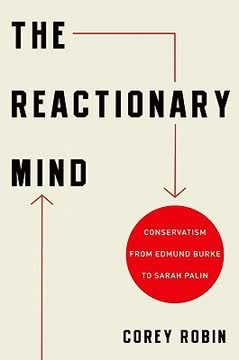Key Takeaways
1. Conservatism is Counterrevolution: A Reaction to Subordinate Agency
To understand these ideas, we have to understand that story. For that is what conservatism is: a meditation on—and theoretical rendition of—the felt experience of having power, seeing it threatened, and trying to win it back.
Defense of Hierarchy. Conservatism, at its core, is a response to challenges to established power structures. It's not merely a defense of tradition, but a reaction against the agency of subordinate classes seeking greater freedom and equality. This reaction stems from a conviction that elites are best suited to rule, and any challenge to their authority threatens the natural order.
Extension of Freedom. The conservative's opposition to equality isn't about limiting freedom in general, but about preventing its extension to the lower orders. Historically, conservatives have favored liberty for the higher classes while advocating constraint for those below. The true threat, in their eyes, is the potential for the subordinate to exercise independent will and disrupt the established hierarchy.
Private Life of Power. The conservative imagination is particularly agitated by democratic movements that challenge power dynamics in intimate settings. The real subject of political deliberations, according to this view, is the private life of power, the contest for rights and standing in the family, the factory, and the field. This focus on the personal relations of power explains the intensity and ferocity of conservative arguments.
2. The Conservative Critique: The Old Regime's Fatal Flaws
What these two opening statements of the conservative persuasion suggest is that the greatest enemy of the old regime is neither the revolutionary nor the reformer; it is the old regime itself or, to be more precise, the defenders of the old regime.
Internal Weakness. Conservatives often criticize the very regimes they seek to defend, arguing that their defenders are morally timid, obtuse, or simply incapable of mounting an effective defense. The old guard is seen as having grown complacent, losing the ideological wherewithal to confront the challenges posed by revolutionary forces.
Moral Timidity. Conservatives often accuse defenders of the old order of being cowed by the moral indictments leveled by their opponents. They see a lack of conviction and a willingness to compromise, which undermines the legitimacy of the established power structure.
Obtuse Defenders. Another common critique is that the defenders of the old regime are simply too clueless to recognize the coming catastrophe. They are portrayed as being so absorbed in their privileges and comforts that they fail to grasp the magnitude of the threat or the need for decisive action.
3. Revolutionary Envy: Conservatives Admire and Mimic Their Opponents
To destroy that enemy, Burke wrote of the Jacobins, “by some means or other, the force opposed to it should be made to bear some analogy and resemblance to the force and spirit which that system exerts.”
Learning from the Enemy. Despite their opposition to the goals of the left, conservatives often study and adopt the tactics and strategies of their opponents. This can involve consciously borrowing techniques or unconsciously absorbing the categories and idioms of the movements they resist.
Strategic Adaptation. Conservatives may strategically adopt the language and methods of the left to advance their own aims. This can involve using progressive vernaculars to appeal to a broader audience or appropriating revolutionary tactics to defend traditional hierarchies.
Unconscious Absorption. Even when they consciously reject progressive arguments, conservatives may find themselves influenced by the very movements they oppose. By engaging with and resisting these movements, they may inadvertently internalize their categories and idioms, leading to subtle shifts in their own thinking.
4. Hobbes: The Counterrevolutionary as Modernist
Hobbes, for one, thought otherwise. In Behemoth, his most considered treatment of the issue, he firmly declared the English Civil War a revolution.
Rejection of Divine Right. Hobbes broke with traditional justifications for monarchy, such as the divine right of kings, and instead grounded his defense of absolute sovereignty in a materialist account of human nature and a theory of consent. This move allowed him to appeal to modern sensibilities while still advocating for a highly authoritarian political order.
Redefinition of Liberty. Hobbes challenged the republican conception of liberty, which linked individual freedom to political participation. He argued that freedom is simply the absence of external constraints on motion, and that individuals can be free even under an absolute monarch. This redefinition of liberty severed the connection between personal freedom and popular government.
Influence on Conservatism. Despite being viewed with suspicion by some conservatives, Hobbes's ideas have had a lasting influence on the right. His emphasis on order, security, and the need for a strong sovereign resonates with conservative instincts, while his account of private liberty has found expression in libertarian thought.
5. Rand's Reactionary Utopianism: The Agon of Superiority
If civilization is to survive, it is the altruist morality that men have to reject.
Rejection of Altruism. Rand's philosophy of Objectivism centers on the virtue of selfishness, arguing that individuals should prioritize their own rational self-interest above all else. She rejects altruism as a destructive force that undermines individual achievement and societal progress.
The Heroic Individual. Rand's novels celebrate the creative genius who stands alone against the masses, defying convention and pursuing his own vision. These heroic figures are portrayed as superior beings who are entitled to their success and should not be held back by the needs of others.
Social Darwinism. Rand's philosophy reflects a Social Darwinist worldview, where success is seen as a measure of fitness and the strong are entitled to dominate the weak. This perspective justifies inequality and rejects any attempt to redistribute resources or opportunities.
6. The Conservative's Populist Play: Making Privilege Popular
Monarchy, he writes, “is without contradiction, the form of government that gives the most distinction to the greatest number of persons.”
Democratic Feudalism. To gain popular support, conservatives often create a sense of shared privilege among the masses. This can involve turning the white majority into a lordly class, sharing in the privileges and prerogatives of governing a subordinate group.
Racial Domination. In the American South, racial domination served as a way of harnessing the energy of the white masses in support of the privileges and powers of established elites. By making every white man a member of the ruling class, slavery created a sense of shared identity and purpose that transcended economic divisions.
Right-Wing Populism. The goal of right-wing populism is to appeal to the masses without disrupting the power of elites. This involves mobilizing the street for spectacular displays of power while ensuring that power is never truly shared or redistributed.
7. Violence as a Virtue: The Conservative's Embrace of the Extreme
To obey a real superior … is one of the most important of all virtues—a virtue absolutely essential to the attainment of anything great and lasting.
Agonistic Vision. Conservatism often embraces an agonistic vision of the good life, where power is demonstrated and privilege earned through arduous struggle. This perspective values strength, intelligence, and the ability to dominate others.
The Battlefield of Power. War is seen as the natural proving ground of superiority, where individuals can demonstrate their fitness to rule through violence and conquest. The battlefield becomes a space for the exercise of power and the establishment of hierarchy.
Capitalism as Warfare. Some conservatives extend this agonistic vision to the marketplace, viewing capitalism as a form of warfare where individuals compete for resources and dominance. The great men of money are seen as warriors who seize their privileges without permission.
8. The Dialectic of Domination: How the Left Shapes the Right
If he is to preserve what he values, the conservative must declare war against the culture as it is.
Opposition to the Left. Conservatism is fundamentally defined by its opposition to the left. It is a reaction against movements for emancipation and equality, and its ideas are shaped by the challenges posed by these movements.
Borrowing from the Left. In the course of opposing the left, conservatives often borrow its ideas and tactics. This can involve adopting the language of rights, appropriating revolutionary strategies, or incorporating elements of progressive thought into their own worldview.
Counterrevolutionary Imperative. The conservative believes that the left has been in the driver's seat for centuries. To preserve what he values, he must declare war against the culture as it is, adopting a radical stance in defense of traditional hierarchies.
9. The Allure of Empire: A Conservative Longing for Order and Purpose
What’s the point of being the greatest, most powerful nation in the world and not having an imperial role?
Longing for Grandeur. Some conservatives yearn for a return to a more hierarchical and ordered world, where the United States plays a dominant role in shaping international affairs. This vision is driven by a desire for purpose, meaning, and a sense of national greatness.
Rejection of Materialism. These conservatives are often critical of the free market and the pursuit of wealth, viewing them as distractions from more noble goals. They seek to elevate politics and government, directing public discussion toward ends more glorious than material well-being.
The Burden of Leadership. The conservative vision of empire entails a willingness to use force and to bear the burdens of global leadership. It rejects isolationism and embraces the responsibility of shaping the world in accordance with American values.
10. The Paradox of Security: How the Quest for Safety Undermines Freedom
The central question that emerges from the civil rights movement is whether the White community in the South is entitled to take such measures as are necessary to prevail, politically and culturally, in areas in which it does not predominate numerically?
Erosion of Liberty. The pursuit of national security can lead to the erosion of civil liberties and the concentration of power in the hands of the state. This can result in the suppression of dissent, the violation of individual rights, and the creation of a climate of fear and suspicion.
Unequal Distribution of Costs. The costs of security measures are often borne disproportionately by marginalized groups, such as immigrants, people of color, and political dissidents. These groups may be subjected to increased surveillance, discrimination, and restrictions on their rights.
The Illusion of Balance. The metaphor of balance between freedom and security conceals the underlying power dynamics at play. It suggests that there is a neutral point where the two values are in equilibrium, when in reality the quest for security often serves to reinforce existing inequalities and hierarchies.
Last updated:
FAQ
What is The Reactionary Mind: Conservatism from Edmund Burke to Sarah Palin by Corey Robin about?
- Comprehensive history of conservatism: The book traces the evolution of conservatism from its origins with thinkers like Edmund Burke to contemporary figures such as Sarah Palin.
- Conservatism as reaction: Corey Robin argues that conservatism is fundamentally a reactionary ideology, formed in opposition to democratic and emancipatory movements.
- Focus on power and hierarchy: The central thesis is that conservatism seeks to preserve hierarchical power structures and social order, often resisting movements for equality and agency.
- Connection to modern politics: The book links historical conservatism to current political events, showing how its core principles adapt to new challenges.
Why should I read The Reactionary Mind by Corey Robin?
- Challenges common misconceptions: The book reframes conservatism, showing it as a dynamic, often radical force rather than simply about tradition or limited government.
- Deepens understanding of politics: It provides historical depth and context for understanding the ideological evolution of the right, from the French Revolution to the present.
- Relevance to current events: By connecting past and present, Robin helps readers make sense of ongoing political debates and conflicts.
- Critical perspective on power: The analysis encourages readers to critically assess how power and inequality are maintained in society.
What are the key takeaways from The Reactionary Mind by Corey Robin?
- Conservatism as defense of hierarchy: The right fundamentally seeks to preserve social hierarchies and resist emancipatory movements.
- Adaptability of reactionary ideology: Conservatism is not static; it borrows from the left’s language and tactics to sustain privilege and power.
- Violence and struggle central: The book highlights how violence and conflict are often embraced as means to assert and maintain superiority.
- Private sphere focus: Conservatism prioritizes maintaining hierarchical power in intimate settings like the family and workplace.
How does Corey Robin define conservatism in The Reactionary Mind?
- Counterrevolutionary ideology: Robin defines conservatism as a political practice born in reaction to democratic revolutions and reform movements.
- Opposition to subordinate agency: Conservatives believe power and authority should remain with elites, resisting the self-governance of subordinate groups.
- Dynamic and activist: Rather than being cautious or moderate, conservatism is portrayed as restless, militant, and often radical in reconstructing regimes to maintain hierarchy.
How does The Reactionary Mind by Corey Robin explain the relationship between conservatism and violence?
- Violence as a virtue: The book argues that conservatives have historically embraced violence as a legitimate and necessary means to defend and demonstrate power.
- Vitality and struggle: Violence is linked to the experience of the sublime and personal vitality, invigorating both individuals and political movements.
- Modern manifestations: Robin connects this tradition to contemporary conservative enthusiasm for military action and law-and-order policies.
- Ambivalence and necessity: While sometimes publicly denounced, violence is often seen as essential for maintaining order and hierarchy.
What role does the private sphere play in conservatism according to The Reactionary Mind?
- Private power as core: Robin emphasizes that conservatism prioritizes maintaining hierarchical power in the private sphere—family, workplace, and local communities.
- Resistance to democratization: Conservatives fear that public democratic advances will threaten traditional authority structures in private life, such as patriarchy and employer control.
- Historical examples: The book discusses how slaveholders and other elites fought to keep subordinate groups in submission at home, illustrating the centrality of private power.
How does Corey Robin analyze the relationship between conservatism and capitalism in The Reactionary Mind?
- Complex relationship: Conservatism sometimes embraces free markets but also critiques capitalism’s destabilizing social effects.
- Capitalism as hierarchy: Conservatives defend capitalism as a means to preserve hierarchy, but worry about its potential to undermine social order.
- Neoconservative adaptation: Neoconservatives seek to infuse capitalism with martial spirit and imperial ambition, resisting the complacency of bourgeois prosperity.
- Critique of decadence: The book highlights conservative concerns that capitalism’s comforts can weaken the will to power and social cohesion.
What insights does The Reactionary Mind by Corey Robin provide about conservatism’s stance on democracy and equality?
- Skepticism of democracy: Conservatism is often wary or hostile to democracy when it threatens established hierarchies.
- Opposition to equality: The right resists egalitarian movements, viewing equality as a threat to social order and natural hierarchy.
- Defense of inequality: Conservatives justify inequality as necessary for excellence, order, and social cohesion, often invoking tradition or natural law.
- Preference for managed democracy: Conservatives may support limited or managed forms of democracy that preserve elite control.
How does Corey Robin interpret the influence of Thomas Hobbes and Ayn Rand on conservatism in The Reactionary Mind?
- Hobbes as first counterrevolutionary: Robin presents Hobbes as the earliest thinker to articulate a counterrevolutionary political theory, defending absolute sovereignty.
- Redefinition of liberty: Hobbes separates personal liberty from political power, justifying submission to authority.
- Rand’s Nietzschean roots: Ayn Rand’s philosophy, influenced by Nietzsche, celebrates inequality and struggle, rejecting altruism and Christianity.
- Capitalism and morality: Rand provides a metaphysical justification for capitalism as the natural order of survival and excellence, resonating with reactionary themes.
How does The Reactionary Mind by Corey Robin analyze the impact of the Cold War and post-9/11 era on conservatism?
- Cold War as conservative triumph: The period solidified conservative power by opposing communism and promoting anti-democratic, hierarchical values.
- Post-9/11 imperialism: The book discusses how 9/11 revitalized conservative ambitions, especially among neoconservatives seeking to reshape the world through American power.
- Cultural contradictions: Robin highlights the failure of post-9/11 conservatism to achieve national renewal, revealing the limits of conservative power in a market-driven society.
- Security as ideological tool: National security concerns are used to justify repression and expand state power, continuing a pattern from the Cold War.
What is the significance of the "Lavender Scare" and national security in The Reactionary Mind by Corey Robin?
- Lavender Scare as repression: The book examines the Cold War persecution of gays and lesbians in government as part of a broader conservative backlash against social change.
- National security as justification: Robin argues that national security is often used to suppress dissent and expand state power, targeting marginalized groups.
- Security vs. freedom paradox: The book critiques the idea of balancing freedom and security, showing how security measures can undermine democratic rights.
- Continuity in the war on terror: The war on terror is presented as a modern extension of these repressive tactics.
How does Corey Robin explore the role of the Supreme Court and figures like Antonin Scalia in conservatism in The Reactionary Mind?
- Originalism as conservative tool: Scalia’s originalist approach to the Constitution is used to limit judicial activism and preserve hierarchical social orders.
- Impact on civil rights: Scalia’s opinions often limit protections for marginalized groups, reflecting conservative priorities.
- Judicial conservatism as power: The Supreme Court is portrayed as a key arena for advancing conservative agendas, shaping law to maintain hierarchy and tradition.
- Dependence on liberal tolerance: Robin notes the irony that conservative influence in the judiciary often relies on the civility and indulgence of more liberal colleagues.
Review Summary
The Reactionary Mind receives mixed reviews, with many praising its incisive analysis of conservatism as a reactionary movement aimed at preserving hierarchy and power. Readers appreciate Robin's examination of conservative thinkers from Burke to Trump, finding his arguments thought-provoking and well-supported. Some criticize the book's structure as disjointed and its portrayal of conservatism as overly simplistic. Despite disagreements, many find value in Robin's exploration of conservative ideology, particularly his insights on the right's co-option of revolutionary tactics and its obsession with heroic individualism.
Similar Books

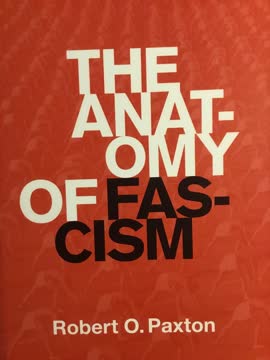

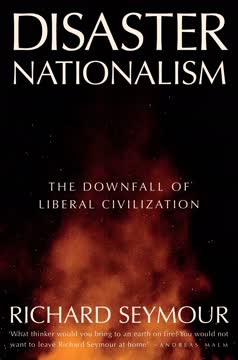


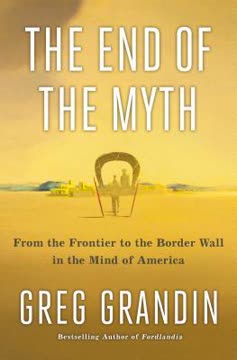
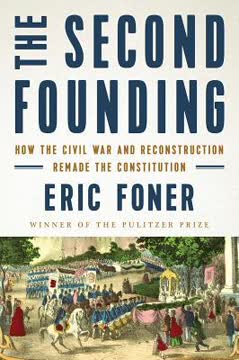
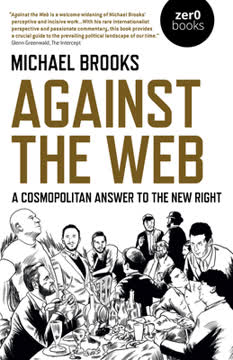
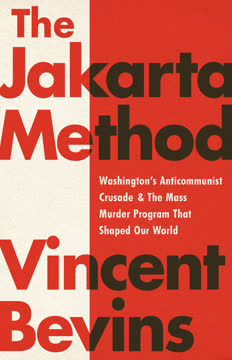
Download PDF
Download EPUB
.epub digital book format is ideal for reading ebooks on phones, tablets, and e-readers.
